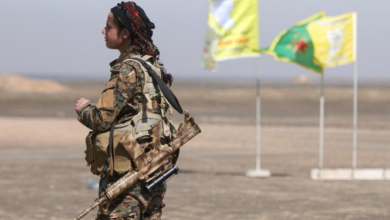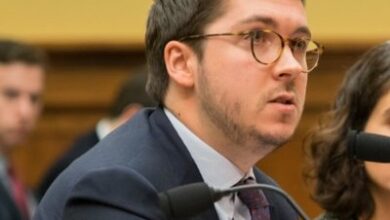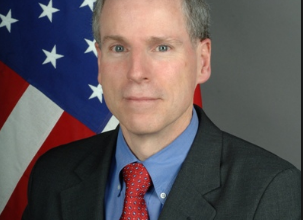
It was a moral rational Cri de Coeur for taking steps to end the carnage in Syria, but it was also grounded in equally clear and compelling strategic imperatives. For weeks, scores of State Department officers in Washington and in U.S. embassies in the Middle East have been circulating a draft of a sharply critical “dissent cable” of the Obama administration’s fickle policies towards the tragic war in Syria, and forcefully urging the United States to end its dithering and carry out military strikes if necessary to compel the Assad regime to end its systematic mass murder of Syrian civilians.
About two weeks ago the message titled Syria Policy was posted on the “Dissent Channel” signed by fifty one mostly middle ranking and junior officers who worked over the last five years on aspects of Syria policy, and who were exposed to the daily gut-wrenching accounts that came across their desks of the demoralizing and very depressing depredations, mostly from the Assad regime.
The Dissent Channel was set up during the Vietnam War as a vehicle for officers who had strong political and moral disagreements with official policies, to express their dissent to their senior officials without fear of retaliation.
Although the military recommendations in the dissent message are thoughtful and the signatories believe that “perhaps most critically, a more muscular military posture under U.S. leadership would underpin and propel a new and reinvigorated diplomatic initiative.” It is very unlikely that President Obama, who pursued half-heartedly and with stunning detachment several tentative, incomplete and contradictory approaches to Syria will fundamentally alter his current policy, which involves only criticizing the Assad policies but steering away from undermining him or his regime, and focus instead on containing the threat of ISIS.
A history of dissent
During the Vietnam War a number of National Security Council staff, including Anthony Lake, who served later as President Bill Clinton’s first National Security Advisor resigned in protest over the war. During the Bosnian war in the 1990’s, a number of midlevel young officers involved in that conflict resigned out of frustration with the incremental, tentative and very cautious approach to the war, particularly the lack of resolve of the Clinton administration to compel the Serbs to end their atrocities against the Muslim Bosnians.
The Clinton administration continued its muddling through until Serb forces in the summer of 1995 massacred methodically and in cold blood more than 7000 Bosnian men of all ages at the village of Srebrenica. The guilt generated by the shame of Srebrenica, the worst mass killing on European soil since WWII, which tarnished America’s credibility as the leader of the NATO alliance finally forced President Clinton, before the onset of his campaign for reelection to decisively use military power to force the Serbs to accept a political outcome.
President Obama remained immune to the shame of the many Srebrenicas that the Assad regime has committed in Syria
Hisham Melhem
The conscientious objectors to America’s policies towards the wars of Vietnam, the Balkans and Syria have always been midlevel and young officers, maybe because group think and bureaucracy have not jaded them enough, and maybe because of their youth they don’t have burdensome family responsibilities, or because they can find other careers. Senior officials rarely resign over moral and political objections to a president’s policies.
The last senior official to resign over a principled disagreement was Cyrus R. Vance, who quit in 1980 to protest President Jimmy Carter’s decision to attempt to rescue American hostages held in Iran. The Syria crisis led two ambassadors, Fred Hof and Robert Ford in 2012 and 1214 to resign out of frustration with President Obama’s handling of the Syrian tragedy. Former senior officials who served in Obama’s first term including Secretary of State Hillary Clinton, Secretary of Defense Leon Panetta, and Director of the Central Intelligence Agency David Petraeus have disagreed with aspects of President Obama’s Syria policies, but none of them resigned in protest. Secretary of State John Kerry has called on occasions for a more robust approach to Syria, and he is believed to share some of the views expressed in the dissent message, but he is the muddling through type of a senior official who would never contemplate resignation.
A slow, rolling genocide
President Assad has avoided committing large scale massacres like Srebrenica; he prefers the non-stop grinding methodical killings that produce many a Srebrenica over weeks and months, for Syria has been nothing if not a slow, rolling genocide. After stating that Assad’s “systematic violations against the Syrian people are the root cause of the instability that continues to grip Syria and the broader region”, the draft calls for “a judicious use of stand-off and air weapons, which would undergird and drive a more focused and hardnosed U.S.-led diplomatic process”. Without initiating targeted military strikes to stop the regime’s repeated violations of the Cessation of Hostilities there will be no real ceasefire and no serious negotiations. The draft says the current policies are leading nowhere.
“With the repeated diplomatic setbacks of the past five years, together with the Russian and Iranian governments’ cynical and destabilizing deployment of significant military power to bolster the Assad regime, we believe that the foundation are not currently in place for an enduring ceasefire and consequential negotiations”. The draft correctly states that “an undeterred Assad will resist compromises sought by almost all opposition factions and regional actors. Shifting the tide of the conflict against the regime will increase the chances for peace by sending a clear signal to the regime and its backers that there will not be a military solution to the conflict”.
The draft sees that“ a more assertive U.S. role to protect and preserve opposition-held communities, by defending them from Assad’s air force and artillery, presents the best chance for defeating Daesh (ISIS) in Syria.” Why? Because “the prospects for rolling back Daesh’s hold on territory are bleak without the Sunni Arabs, who the regime continues to bomb and starve”. The draft warns that, “a de facto alliance with the regime against Daesh would not guarantee success: Assad’s military in undermanned and exhausted. Kurdish YPG fighters cannot-and should not- be expected to project power and hold terrain deep into non-Kurdish areas. And, crucially, Syria’s Sunni population continues to view the Assad regime as the primary enemy in the conflict”. The draft correctly states that stopping the regime’s atrocities would have a mitigating impact on the refugee and internally displaced Syrians whose plight “has deeply affected Syria’s neighbors for years and is now impacting our European partners in far-reaching ways that may ultimately jeopardize their very character as open, unified and democratic societies”.
The signatories of the draft re-iterate that “we are not advocating for a slippery slope that ends in a military confrontation with Russia; rather, we are calling for a credible threat of targeted U.S. military responses to regime violations to preserve the Cessation of Hostilities (CoH) and the political track, which we worked very hard to build”. After acknowledging that military action is not a panacea, and after recognizing that there is a risk of further deterioration in U.S.-Russian relations, the draft states, “nonetheless, it is also clear that the status quo in Syria will continue to present increasingly dire, if not disastrous, humanitarian, diplomatic and terrorism- related challenges.” The draft concludes that the “United States cannot contain the conflict with the current policy. In this regard, we firmly believe it is time the United States, guided by our strategic interests and moral convictions, lead a global effort to put an end to this conflict once and for all”.
Moral clarity in perilous times
The dissent cable is a moral indictment of a bankrupt and intentionally deceptive policy, leveled by honorable men and women who saw evil at work and sought to stop it. These fifty one dissenting voices spoke for many more officials, who agreed with them but opted not to sign it for one reason or another. This is the largest number of dissident official voices who have affixed their names to such a document. Fred Hof, a great American patriot, a man of impeccable integrity who always spoke truth to power was succinct and blunt when he wrote “fifty-one loyal and effective officials have risked their careers to protest a policy that is profoundly wrong and fully counterproductive. Their superiors should press President Obama one more time to change his policy. If he refuses, their choice is plain: stand up and publicly defend the indefensible, or resign”. In a separate email to me Fred wrote of the dissent cable that it is “an honorable gesture; one that may resuscitate elements of our reputation among Syrians. But I doubt it will have any effect at all on the President and his entourage”.
In fact, the State Department spokesperson John Kirby totally rejected the recommendation of the dissent cable for the use of judicious force against the Assad regime by stating explicitly that “there isn’t any U.S. effort to target Bashar al-Assad. That’s not part of the calculus.” He added “none of the other options are better than the one we have been pursuing”.
There are many villains in the Syrian tragedy; chiefly among them is Assad and his regime, his enthusiastic allies the Iranians and the Russians and their auxiliary the Shiite militias particularly the Lebanese Hezbollah, and the assortment of ruthless Sunni extremists from ISIS to Jabhat al-Nusra. But, President Obama who reneged on his promises to help the Syrian people and did not deliver on his threat to punish Assad’s use of chemical weapons against Syrian civilians, cannot escape the charge of being complicit in the death of as many as 500,000 Syrians.
Former President Bill Clinton was shamed by the massacre at Srebrenica to move militarily against the Serbs, but President Obama remained immune to the shame of the many Srebrenicas that the Assad regime has committed in Syria. One would hope that years from now when President Obama recalls the victims he could not save at Sandy Hook, Aurora, and Orlando, killed at the hands of tormented individual souls, that only the likes of Dostoyevsky may be able to lay bare to us, he will remember also the thousands of Syrians systematically massacred by the Syrian, Iranian and Russian regimes, that he could have saved had he not withdrawn to a closed and cold universe that not even Dostoyevsky could explore.
_______________
Hisham Melhem
alarabiya.net



